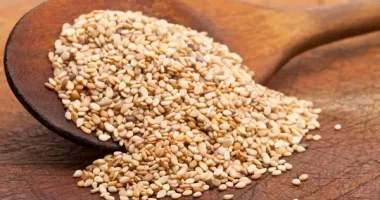Cases of coronavirus have been climbing in recent weeks, plunging the full easing of restrictions on 21 June into uncertainty. Although the mass inoculation programme appears to be keeping hospitalisation rates at bay, there is a concerning development. Around 400 people a day who have had both doses of the coronavirus vaccine are testing positive across the United Kingdom.
Speaking to Sky News yesterday, Sir David King, former chief scientific adviser to the UK Government and chair of the Independent Sage Group, issued an ominous warning about the uptick in cases in those vaccinated.
He said the current Covid-19 figures are “evidence of another wave appearing”.
“We know that anyone vaccinated twice is relatively safe against the virus.
“But let’s not forget the one in 25 new cases are people who have been vaccinated twice – that means 400 new cases a day are people who had the vaccine twice.
“While there is an extensive amount of virus out there in the country, amongst our people, it is dangerous.”
He continued: “Dying isn’t the sole issue about that we’re trying to avoid here. The number of people who are suffering from long Covid in the country is enormous and this is not a simply a flu, once you’ve had the vaccine.”
The increase in cases across the UK is being ascribed to the Indian variant that was first discovered in India.
It is believed to be up to 40 percent more transmissible than the Kent strain.
What are my chances of being reinfected after receiving both doses of a coronavirus vaccine?
Together with research colleagues at King’s College London, the team behind the Symptom Study app looked at data from 1.1 million app contributors who had logged one or both doses of the Pfizer or AstraZeneca vaccine in the app between 8th December 2020 and 14th May 2021.
They saw that 2,394 and 187 people tested positive for COVID-19 more than two weeks after their first and second jabs, respectively, with the chances of becoming infected falling as time passed.
That’s the equivalent of one in 500 (0.2 percent) and one in 3,333 (0.03 percent), although your individual chances of getting infected after vaccination will depend on the prevalence of COVID-19 in your area at any given time.
Reassuringly, only 104 people in the vaccinated group who tested positive for COVID-19 ended up in hospital (one in 2,500 or 0.04 percent).
Are certain people more prone than others to reinfection?
Drilling down into the data, the researchers saw that people with less healthy lifestyles and higher body mass index (BMI) were more at risk of becoming reinfected after vaccination, as well as people living in areas of higher social deprivation.
BMI determines if you’re a healthy weight for your height.
Older people with health conditions causing frailty were also more likely to get infected after their jab, which could be particularly relevant for elderly people living in care homes, although age itself didn’t seem to affect the chances of reinfection.
According to the team’s analysis, people over the age of 60 who’d been vaccinated were less likely to develop prolonged COVID symptoms (long COVID) than those who had not.
Having an underlying health condition – including asthma, cancer, diabetes, and lung or heart disease – didn’t increase the chances of being reinfected after vaccination compared with unvaccinated groups, although there was a small increase in risk for people over the age of 60 with kidney disease.
“It’s possible that people with these conditions are still shielding to some extent, whether vaccinated or not, which could explain this finding,” the researchers pointed out.
Vaccine rollout – latest
The NHS is currently offering the coronavirus (COVID-19) vaccine to people most at risk.
You can get the COVID-19 vaccine if:
- You’re aged 25 or over
- You’ll turn 25 before 1 July 2021.
Post source Daily Express








